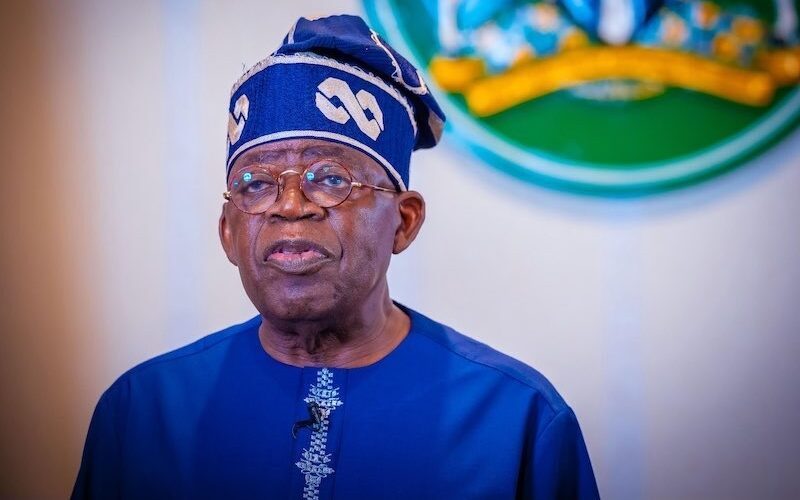•Says 1.68mbpd of crude oil produced in September
•Gas output of 7bcf/day, highest in recent times achieved
•Attributes hike in LPG price to recent oil workers’ strike
•NNPC raises petrol price to N905 on union’s supply disruption
Deji Elumoye and Emmanuel Addeh in Abuja
The Group Chief Executive Officer of the Nigerian National Petroleum Company Limited (NNPC), Bayo Ojulari, has disclosed that Nigeria lost 200,000 barrels per day of crude oil to the recent strike action embarked upon by the nation’s oil workers, culminating in a total of over 600,000 barrels during the three-day supply disruption.
The Petroleum and Natural Gas Senior Staff Association (PENGASSAN) had last month directed its members to embark on strike in the wake of a face off with the management of Dangote Refineries over the reported sack of 800 workers.
Reacting to the effect of the three-day strike action on the oil industry, Ojulari stated that the industrial action had a telling effect on the production capacity of the NNPC.
The GCEO who spoke with newsmen after meeting with President Bola Tinubu in Lagos while describing the strike action as unfortunate stated that Nigeria has recently achieved a 7 Billion Cubic Feet (BCF) of gas.
“I think it was unfortunate that the Dangote and PENGASSAN issue led to strike and whenever there is strike and critical staff manning critical facilities are not available and optimum production is almost impossible. In this particular case, we actually lost significant production of over 200,000 bpd that was deferred.
“We also have gas production that was deferred, we also have power generation that was impacted by about 1.2 megawatts of power that was affected by that strike,” he said.
He, however, expressed happiness that the crisis had been resolved through the timely intervention of the federal government via the Federal Ministry of Labour and the Office of the National Security Adviser (NSA).
Ojulari added: “I’m very pleased that the federal government through the leadership of the Minister of Labour and full support of the National Security Adviser was able to put together everyone into a dialogue and brought everybody to the table and now there has been a communiqué that has been agreed on the way forward.
“We are all very hopeful that everyone will abide by the communique, since then we have been able to return production back to status quo, there has been one or two areas that we are still trying to catch up with. Overall, we have gradually gone back to restore lost production and the deferment that we have as of today,” he added.
Ojulari further stated that Nigeria has been able to step up crude oil production with effect from last month, saying 1.68 million barrels per day were produced in September, 2025 while 7 billion cubic feet of gas was also produced per day during the same period.
“We are making good progress. As you know, we recorded 1.68mbpd of oil production last month which was very good. That was the first in about five years. In terms of milestones, we also recorded the highest gas production above 7 Billion Cubic Feet per day which is also the highest in recent times.
“What we are also expecting is that with some Turnaround Maintenance we have done in August and September and all of those are meant to come back this month, we are hoping that by the end of the year we should at least be clocking 1.8mbpd,” the NNPC chief executive stated.
He attributed the current hike in price of cooking gas to the artificial scarcity caused by the recent PENGASSAN strike, but expressed hope that the price will stabilise before long with the resolution of the crisis.
“The increase you saw was relatively artificial because for the period of the strike, movement and loading were delayed for about two to three days and because of that you see that impact and as things return to normal it takes sometimes for distribution to fully return and you see with that delay some of the people that have existing resources in reserves had to put up the price.
“My expectation is that now that things are back to normal prices it should return to what they were before the strike,” Ojulari added.
Asked the purpose of his visit to the President, Ojulari said it was a routine visit to update him about developments in the oil sector, especially the task given to him to attract investors.
“It is quite an important opportunity to update the president on the progress in NNPC particularly in terms of production performance, in terms of progress we are making in terms of attracting investment.
“As you recall, the President gave us a clear mandate which is to grow production to at least 2 million bpd by 2027 and up to 3 million bpd by 2030 as well as grow gas production as well. So, how are we progressing this year and how are we preparing for next year in terms of ensuring we deliver this growth? So, that was one of my updates to the President,” the engineer noted.
Meanwhile, the NNPC has once again raised the pump price of Premium Motor Spirit (PMS), popularly known as petrol, at its retail outlets, as light queues returned following the PENGASSAN and Dangote
It was learnt that NNPC stations in Abuja, especially in Wuse Zone 6 and Zone 4 areas had adjusted their pump price from N890 to N905 per litre, representing a N15 increase, or roughly 1.7 per cent upward review.
The President of the Independent Petroleum Marketers Association of Nigeria (IPMAN), Abubakar Maigandi, attributed the latest price hike to recent supply disruptions caused by the standoff between PENGASSAN and the Dangote Refinery.
He said: “It is due to PENGASSAN’s strike disruption. However, our members are still selling between N885 and N895 per litre,” the IPMAN chief said.


